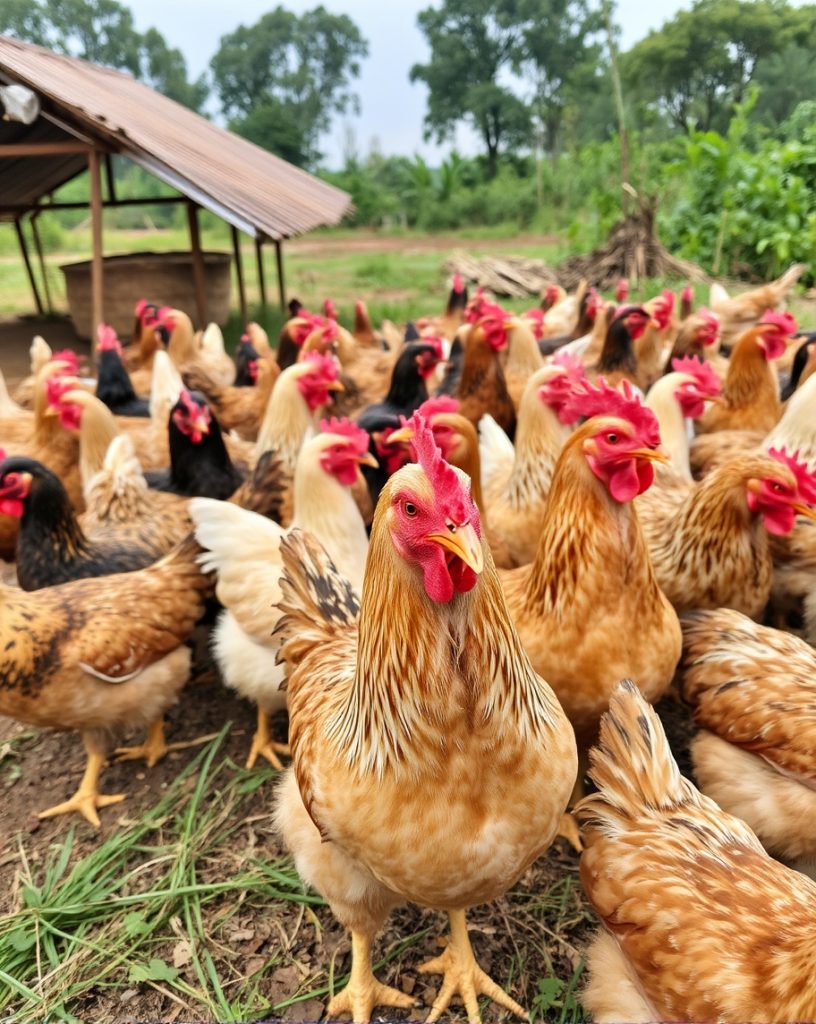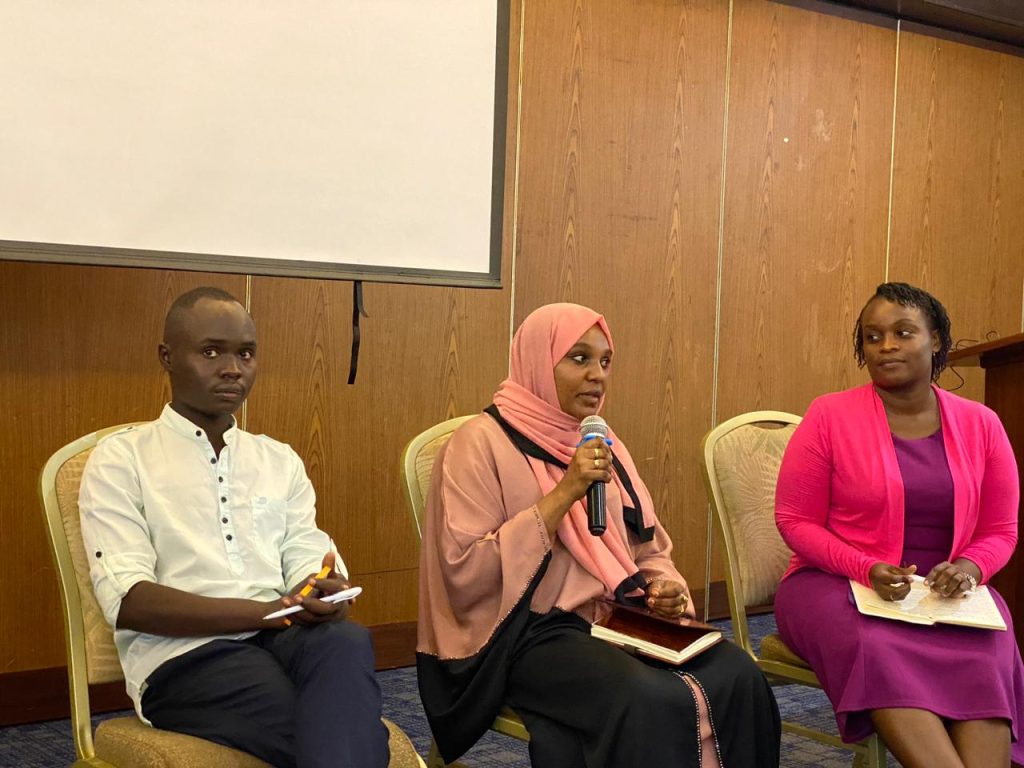Climate change, a multifaceted global challenge, is not only reshaping weather patterns and elevating sea levels but also posing a significant threat to global food security. Among the various consequences of this phenomenon, one particularly alarming issue is the heightened risk of antimicrobial resistance (AMR) in chickens, a primary source of protein for many people around the world. This growing crisis has broad implications, not only for agriculture but also for human health.
AMR is currently recognized as one of the top global public health threats. According to the WHO Global Antimicrobial Resistance and Use Surveillance System (GLASS), AMR was directly responsible for 1.27 million global deaths in 2019 and contributed to 4.95 million deaths, pegged on recent estimates. The misuse and overuse of antimicrobials in humans, animals, and plants are the primary drivers behind the development of drug-resistant pathogens. This misuse is especially prevalent in chicken farming, where antibiotics are frequently administered not only to treat infections but also as a preventive measure and growth promoter.
It is worth noting that chicken producers frequently rely on antibiotics such as colistin sulfate to protect their flocks from infections and ensure optimal growth rates. According to a study published by Frontiers in Microbiology, in 2021 over 70% of antibiotics worldwide are used in animal agriculture, with a substantial portion administered to chickens. These antibiotics are often used as a preventive measure to reduce the risk of disease outbreaks in densely populated chicken farms. However, the excessive and indiscriminate use of antibiotics in chicken farming has led to the rapid emergence of AMR. This is particularly concerning as resistant bacterial strains have been found to thrive in environments influenced by climate change, such as warmer and more humid conditions, as outlined in a 2019 report by the World Health Organization (WHO).
Rising global temperatures and an increase in extreme weather events, such as heatwaves and floods, can severely disrupt chicken farming practices. Notably, chickens are highly susceptible to environmental stress, and when exposed to extreme heat or other adverse conditions, they become more vulnerable to diseases. To combat this increased susceptibility, farmers often resort to administering higher doses of antibiotics to keep their flocks healthy. Additionally, climate change can also affect the quality and availability of feed resources, leading to nutritional deficiencies that further compromise the health and resilience of chickens. The combination of these factors creates a cycle in which the reliance on antibiotics becomes increasingly entrenched, thereby promoting the spread of AMR.
The repercussions of AMR in chickens extend far beyond the agricultural sector. Studies have shown that when contaminated chicken products are consumed by humans, AMR bacteria can be transmitted, leading to infections that are increasingly challenging to treat. Research published in The Lancet Infectious Diseases indicates that drug-resistant infections currently cause at least 700,000 deaths globally each year, with the consumption of antibiotic-laden animal products being a significant contributing factor. This poses a grave threat to public health, especially for individuals with weakened immune systems or those suffering from chronic ailments. The spread of AMR bacteria can result in longer illness durations, increased medical costs, and a higher mortality rate. In extreme cases, it may even render some bacterial infections untreatable with existing antibiotics, ushering in a potential post-antibiotic era where minor infections could once again become life-threatening.
To address the escalating threat of AMR in chicken production it is imperative to adopt more sustainable and responsible farming practices. Studies suggest that reducing antibiotic use and implementing rigorous biosecurity measures can significantly lower the incidence of AMR in chicken farms. Additionally, promoting vaccination programs to enhance the natural immunity of chickens is a viable strategy, as evidenced by research published in the Journal of Applied Poultry Research, which demonstrated a marked decrease in disease occurrence in vaccinated flocks. Moreover, increased investment in research and development is crucial to explore alternative strategies for disease prevention and treatment, such as the use of probiotics, prebiotics, and other non-antibiotic interventions that have shown promise in reducing the reliance on antibiotics in livestock production.
Climate change is a complex issue with far-reaching implications that cut across various sectors. By understanding the risks posed to our chicken supply and the interconnected nature of animal and public health, we can take proactive steps to mitigate the impact of AMR. A concerted effort from policymakers, the agricultural sector, and the global health community is required to ensure a sustainable food supply and to safeguard public health for future generations.
References
Van Boeckel, T. P., et al. (2021). Antibiotic Resistance in Livestock: A Major Public Health Issue. Frontiers in Microbiology.
World Health Organization (2019). Antimicrobial Resistance: Global Report on Surveillance.
Thornton, P. K. (2019). Climate Change and Food Security. Annual Review of Environment and Resources.
Aarestrup, F. M. (2019). Sustainable Agriculture and AMR Control in Livestock. The Lancet.
Murray, C. J. L., et al. (2022). Global Burden of Antimicrobial Resistance in 2019: A Systematic Analysis. The Lancet.
World Health Organization (2019). Climate Change and Antimicrobial Resistance.
Zhang, L., et al. (2021). Effectiveness of Vaccination Programs in Reducing AMR in Poultry. Journal of Applied Poultry Research.
Gaggìa, F., et al. (2020). Probiotics and Prebiotics in Animal Nutrition: Effects on the Livestock Gut Microbiota. Frontiers in Microbiology.
By Imali Ngusale and Benard Maswach


